These 10 Retailers Have Gone Bankrupt in 2020 (and These 10 Still Might)
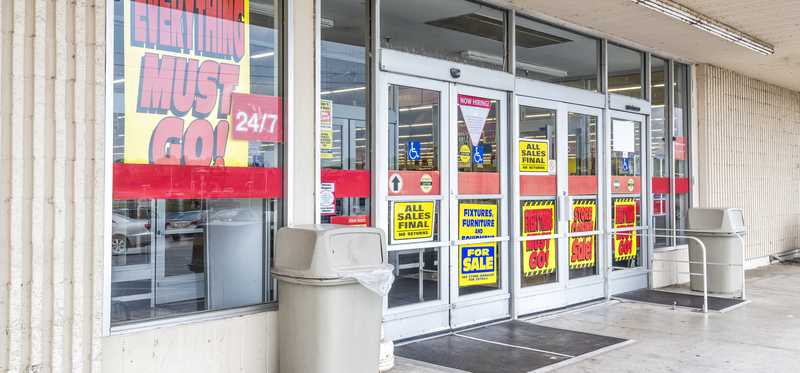
These 10 Retailers Have Gone Bankrupt in 2020 (and These 10 Still Might)
Too late for some
The COVID-19 pandemic has been an unquestionable disaster for brick-and-mortar retailers. The weeks-long shutdown forced several struggling businesses into bankruptcy, and a sluggish recovery is likely to mean that many more will slip into the abyss. Malls are still closed in a number of states and coronavirus cases are spiking again, which will only add to the pressure on the sector.
Keep reading to see 10 retailers that have already gone bankrupt this year, followed by 10 more that could also go defunct.
5 Winning Stocks Under $49 We hear it over and over from investors, “I wish I had bought Amazon or Netflix when they were first recommended by the Motley Fool. I’d be sitting on a gold mine!” And it’s true. And while Amazon and Netflix have had a good run, we think these 5 other stocks are screaming buys. And you can buy them now for less than $49 a share! Simply click here to learn how to get your copy of “5 Growth Stocks Under $49” for FREE for a limited time only.
Previous
Next
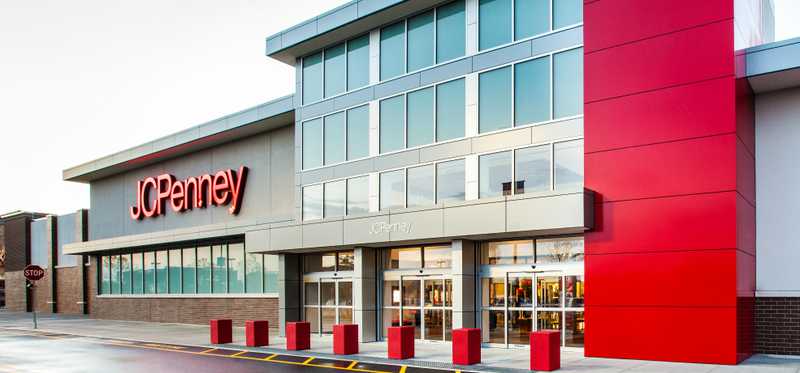
1. J.C. Penney
J.C. Penney (OTC: JCPNQ) is perhaps the best known of the retail bankruptcies this year. The 118-year-old department stores had been struggling to stay relevant for years after a botched turnaround plan under CEO Ron Johnson caused same-stores to plunge 25% in 2012.
Since then, the retailer has been unable to turn a consistent profit, and its sales have steadily dwindled. With a crushing debt burden of $3.6 billion as of the end of last year, its turnaround efforts were hobbled and it couldn't borrow to fund needed investments. After missing an interest payment, it declared bankruptcy on May 15, and now plans to close 242 stores. Mall owners Simon Property Group and Brookfield Property Partners are now among those considering buying the remaining stores out of bankruptcy.
ALSO READ: Plunging Sales Threaten J.C. Penny's Revival Hopes
Previous
Next
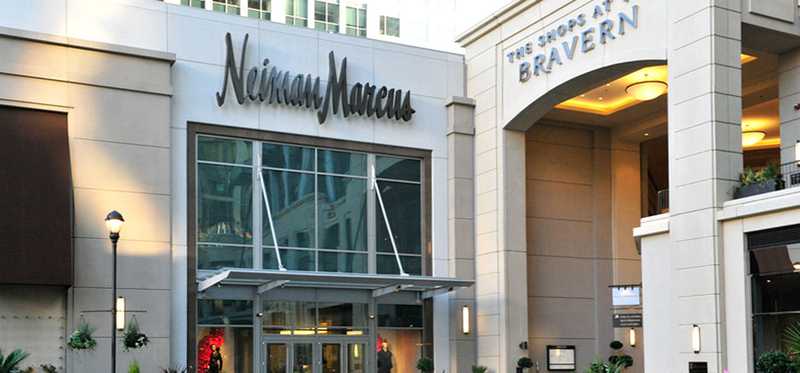
2. Neiman Marcus
High-end department store chain Neiman Marcus was one of the first major retailers to declare bankruptcy from the pandemic, filing for Chapter 11 on May 4.
Like J.C. Penney, privately held Neiman Marcus could not overcome the debt burden it was carrying as private equity owners had loaded it up with debt.
At the time of the filing, the company faced around $4 billion in debt. Though the underlying business was solidly profitable and generated consistent operating profits, annual interest expenses of more than $300 million made it impossible for it to generate a profit on the bottom line.
Neiman Marcus has just 43 namesake stores, though it said it was not planning mass store closures.
Previous
Next

3. J. Crew
The brand that once defined the preppy look in America has been forced into Chapter 11 as well.
Though its Madewell sub-brand has been a rising star in recent years, J. Crew has been struggling for years and has also been crushed by debt, much of it accumulated in private equity deals.
The company filed for bankruptcy in early May with a plan to convert $1.65 billion of the company's debt into equity.
Thanks to Madewell, J. Crew may be in a stronger position than other bankrupt retailers as it was close to taking Madewell public and has already reached an agreement with its creditors to alleviate its debt load.
Previous
Next
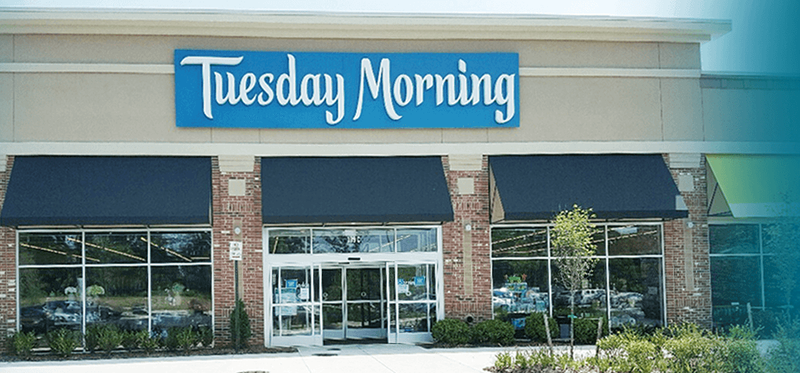
4. Tuesday Morning
Home goods retailer Tuesday Morning joined the ranks of those in restructuring at the end of May as the company filed for Chapter 11. The company plans to close 230 stores, or approximately one-third of its fleet. Tuesday Morning's bankruptcy wasn't a surprise as the company had been losing money for years and its model as a closeout retailer works much better in stores than online. Therefore, the pressure from the store closures resulting from the pandemic was too much to withstand.
Tuesday Morning had no long-term debt, but it had little cash on hand to handle payables and rent when the pandemic struck.
5 Winning Stocks Under $49 We hear it over and over from investors, “I wish I had bought Amazon or Netflix when they were first recommended by the Motley Fool. I’d be sitting on a gold mine!” And it’s true. And while Amazon and Netflix have had a good run, we think these 5 other stocks are screaming buys. And you can buy them now for less than $49 a share! Simply click here to learn how to get your copy of “5 Growth Stocks Under $49” for FREE for a limited time only.
Previous
Next

5. Pier 1 Imports
Pier 1 actually filed for bankruptcy before the pandemic hit. The home goods retailer had been falling behind for years, losing share to online operators like Wayfair and big-box chains as mall traffic has fallen.
Given the impact of the pandemic, the bankruptcy filing was timely. In January, the company said it planned to restructure and close about 450 stores, or roughly half of its base, which preceded its bankruptcy filing in February.
By May, the company had been forced into liquidation, unable to find a buyer or investors after having to close its stores during the pandemic. The company said it would liquidate its inventory as it reopened.
ALSO READ: 3 Stocks You Don't Want to Be Holding When the Market Crashes Again
Previous
Next

6. GNC
Selling vitamins and nutritional supplements in stores has gotten more difficult in the e-commerce era, and the store closures from COVID-19 toppled GNC just weeks ago as the chain had been seeing sales erode for years.
GNC has more than 3,000 stores in North America and had close to $1 billion in debt coming due.
As part of the bankruptcy, the company expects to close at least 800 to 1,200 stores, and said it had overwhelming support from its creditors in the bankruptcy process and hoped to emerge from it expeditiously. Given the lingering challenges from the pandemic, operating thousands of stores in the current environment seems difficult.
ALSO READ: Retailers Are Leaving Malls for Good Reason, Some Better Prepared Than Others
Previous
Next

7. Chuck E. Cheese
The kid-friendly pizza-and-games emporium threw in the towel just weeks ago. As a high-touch environment for kids to play in, Chuck E. Cheese is poorly suited to coronavirus protocols like social distancing.
During the shutdowns, the company actually tried selling pizza under the name Pasqually's on food delivery apps like Grubhub.
CEC Entertainment, the parent of Chuck E. Cheese and Peter Piper Pizza, filed for bankruptcy on June 25 with plans to escape about 45 store leases to emerge as a slimmer, more efficient company. A successful reopening, however, likely won't happen until the pandemic is under control.
Previous
Next
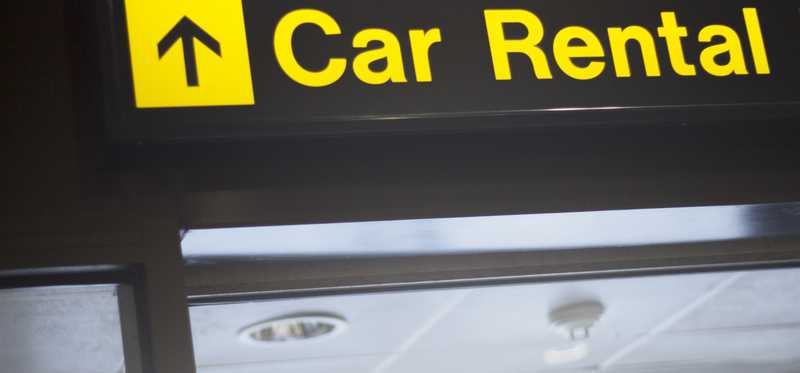
8. Hertz
The pandemic has hit the travel industry hard as Americans have given up on faraway vacations and business travel. This move towards staying close to home has impacted the rental car industry, so it's not surprising to find Hertz on this list.
The rental car company, which also owns Dollar and Thrifty, had been under pressure before the pandemic from competition from ridesharing apps like Uber, which have replaced traditional rental cars for business travelers and others.
Hertz had more than $18 billion in debt at the end of March, which explains why the pandemic pushed the company into bankruptcy. With airline travel still down 75% from a year ago, the rental car industry is unlikely to return to pre-pandemic levels until there's a vaccine or the threat of COVID-19 ends.
Previous
Next
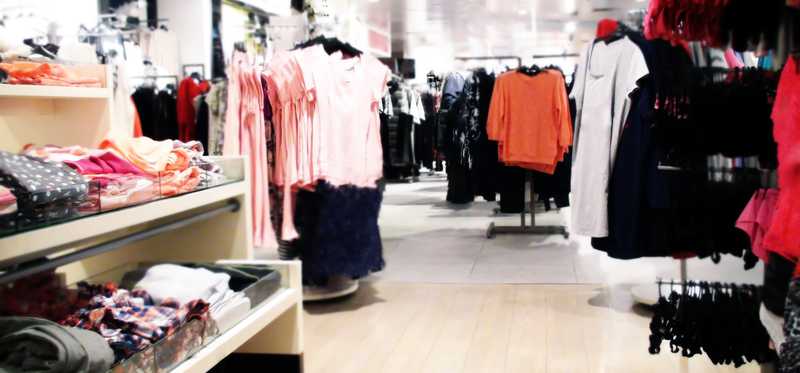
9. Stage Stores
Department stores have been suffering for years in the changing retail environment, and Stage Stores is no exception. Last year, the company pivoted to an off-price model, which briefly showed promise as sales spiked for a quarter and then fell back down.
The company had a history of losses and was carrying $360 million in debt late last year. It had also received multiple delisting warnings from the New York Stock Exchange after its share price fell below $1.
Stage Stores did appear to be making some progress in its turnaround efforts but the pandemic and the store closures dealt it a blow it could not recover from.
The company said in May that it planned to have liquidation sales at more than 600 stores, or nearly its entire base, as they reopened following store closure mandates.
Previous
Next

10. Modell's
Sporting goods chain Modell's wasn't quite a victim of the pandemic as the company filed for bankruptcy in March, before the worst of the crisis hit.
The privately held retailer, whose stores date back to the 1800s, said it would close all of its locations and liquidate its merchandise.
The New York-based company succumbed to similar threats as other retailers, confronted with rising rents, online competition, and mounting debts. Management also pointed to a warm winter, short holiday season, and the lack of success of New York sports teams, as a winning team can drive sales of jerseys and other apparel.
The company planned to close all 141 of its stores.
5 Winning Stocks Under $49 We hear it over and over from investors, “I wish I had bought Amazon or Netflix when they were first recommended by the Motley Fool. I’d be sitting on a gold mine!” And it’s true. And while Amazon and Netflix have had a good run, we think these 5 other stocks are screaming buys. And you can buy them now for less than $49 a share! Simply click here to learn how to get your copy of “5 Growth Stocks Under $49” for FREE for a limited time only.
Previous
Next

On the verge...
This next set of 10 retailers are those that are on the verge of filing for bankruptcy in the near future if their circumstances don't see a drastic improvement soon.
Previous
Next

1. Tailored Brands
The pandemic has been especially hard on apparel retailers who were considered non-essential and therefore forced to close their stores. Many of them were on weak footing before the crisis as mall traffic was declining and the industry was overstored as sales continued to shift to the online channel.
Tailored Brands (NYSE: TLRD), the parent of Men's Wearhouse and Jos. A. Bank, was one of these struggling retailers coming into the crisis and is in an even worse position today. Selling suits is also a particularly precarious business at a time when few people are going into the office, and social events like weddings have been called off.
That's why Tailored Brands acknowledged in June that it may be pushed into bankruptcy. In a filing it said, "If the effects of the COVID-19 pandemic are protracted and we are unable to increase liquidity and/or effectively address our debt position, we may be forced to scale back or terminate operations and/or seek protection."
Previous
Next

2. Ascena Retail Group
You may not be familiar with Ascena (Nasdaq: ASNA), but you likely know many of the women's apparel chains it owns, including Ann Taylor and Lane Bryant.
However, Ascena has been struggling for years. It owns thousands of stores but is only borderline profitable. Last year, it shuttered Dressbarn and sold Maurices for $300 million to help free up capital.
The pandemic has been tough on the mall-based retailer and in early June Bloomberg reported that the company was considering a bankruptcy and had hired restructuring advisers. Later in the month, the company paid out millions in executive bonuses, which some saw as a sign that bankruptcy was imminent. Considering the company was already retrenching before the pandemic, it's not surprising to see it teetering on the edge of insolvency now.
ALSO READ: Unemployment Fell in June, but That Doesn't Mean the Economy Isn't in Trouble
Previous
Next
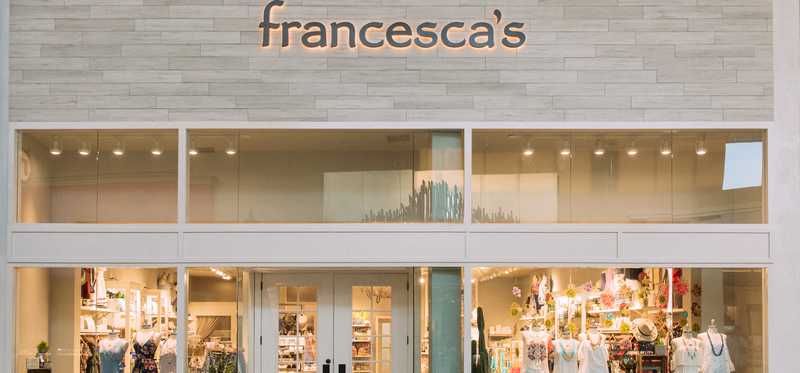
3. Francesca's Holdings
Shares of mall-based boutique chain Francesca's Holdings (Nasdaq: FRAN) had plunged in the years leading up to the pandemic as sales steadily fell and profits turned into losses.
So it's not surprising that the retailer is now on the brink of bankruptcy. The company had issued a warning that its ability to continue as a "going concern" was in jeopardy in May, and on June 16 the company said that if it was unable to obtain financing, it may need to seek bankruptcy protection.
As of June 2, the company had $21.3 million in cash and $15 million in debt, but with many of its stores still closed, it's clear why the company will need a cash infusion soon.
Previous
Next

4. Party City
Party supply isn't a good business to be in right now as a lack of social gatherings mean that people don't need products like balloons, confetti, or disposable plates that stores like Party City (NYSE: PRTY) sell.
The retailer was struggling coming into the pandemic as its share price had declined and sales had fallen. As of the end of the first quarter, the company had $1.76 billion in debt net of cash and had $194.4 million in cash after tapping a revolving credit facility.
In order to help stave off a potential bankruptcy, the company proposed a debt exchange that would give bondholders a 19.9% equity stake in the company and reduce its debt burden by $450 million. Doing so would help keep the company afloat, but extended headwinds from the pandemic could lead to bankruptcy later on.
5 Winning Stocks Under $49 We hear it over and over from investors, “I wish I had bought Amazon or Netflix when they were first recommended by the Motley Fool. I’d be sitting on a gold mine!” And it’s true. And while Amazon and Netflix have had a good run, we think these 5 other stocks are screaming buys. And you can buy them now for less than $49 a share! Simply click here to learn how to get your copy of “5 Growth Stocks Under $49” for FREE for a limited time only.
Previous
Next

5. Express
Another mall-based retailer that's been struggling for a while is Express (NYSE: EXPR), an apparel chain focused on young adults.
Express is on better footing than some other retailers, but the company has been in retreat for years. Express said at the beginning of the year it planned to close about 100 stores over the next three years as part of a fleet rationalization, but the pandemic could accelerate those store closings. The company finished the first quarter with $236 million in cash and $165 million in long-term debt, but it also had $225 million in rent payments due over the next year and if customer traffic doesn't return to its stores, it may struggle to make those payments. The company lost $131 million in operating cash flow in the first quarter, and though about half of its stores had reopened by early June, that's not a guarantee that customers will return.
Previous
Next

6. Big 5 Sporting Goods
The sporting goods retail landscape has been culled significantly in recent years as Sports Authority, Bob's, City Sports, Gander Mountain, and Modell's have all been forced into bankruptcy.
Big 5 Sporting Goods (Nasdaq: BGFV), a chain spread across the Western U.S., could be the next to join them. The stock has fallen to less than $2, down from a peak of close to $20 in 2016.
The company posted a modest loss in the fourth quarter of $4.6 million as it closed half of its store base in the last 10 days of the quarter.
Considering that the bulk of the impact of the pandemic was in the second quarter, the next round of results will be much worse. Big 5 has enough liquidity to manage the current challenges, but if the pandemic lasts longer than expected, it could put the company on the road to bankruptcy.
Previous
Next
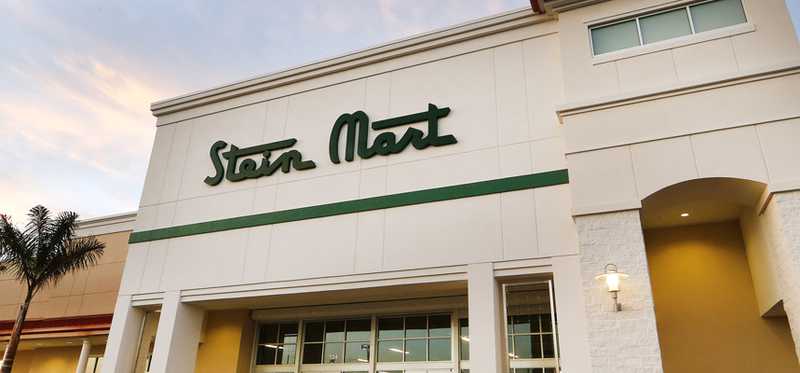
7. Stein Mart
At the beginning of the year, struggling off-price retailer Stein Mart (Nasdaq: SMRT) agreed to be acquired by Kingswood Capital Management, a private equity firm for $0.90 a share. However, the deal was dissolved after the pandemic hit as the two parties mutually agreed to terminate the merger agreement.
Today, Stein Mart trades for less than $0.40 a share. It lost $65.7 million in its first quarter, and the company now has nearly $200 million in debt due in the coming years. It only recently reopened all of its stores and customer traffic is likely to be slow due to fears about the pandemic. Stein Mart sold itself to Kingswood because its prospects were dim before the pandemic, and without another buyer, bankruptcy could be its only option.
Previous
Next

8. GameStop
Video game retailer GameStop (NYSE: GME) has been struggling for years as selling and renting cartridge games has increasingly been disrupted by digital games that don't require a visit to a retail store.
Meanwhile, those competitors were not affected by the pandemic the way that a non-essential retailer like GameStop was.
The company lost $104 million in the first quarter as it was forced to close stores, and it owes $417 million in debt over the next year. GameStop has $570 million in cash and more borrowing capacity under its revolving credit agreement, but challenges from the pandemic could tighten the screws on it.
5 Winning Stocks Under $49 We hear it over and over from investors, “I wish I had bought Amazon or Netflix when they were first recommended by the Motley Fool. I’d be sitting on a gold mine!” And it’s true. And while Amazon and Netflix have had a good run, we think these 5 other stocks are screaming buys. And you can buy them now for less than $49 a share! Simply click here to learn how to get your copy of “5 Growth Stocks Under $49” for FREE for a limited time only.
Previous
Next

9. J. Jill
J. Jill (NYSE: JILL) was struggling before the pandemic like a number of other women's apparel retailers, and the crisis has dealt a severe blow to the retailer's survival prospects.
J. Jill has gone into forbearance on some of its loans, and the company issued a "going concern" warning in June.
The retailer has also received a delisting warning from the New York Stock Exchange as its share price has fallen to below $1. It finished May with $60 million in cash, but had $233 million in debt in February.
As of June 15, the company had reopened 85% of its stores, but if business doesn't return, bankruptcy seems likely.
Previous
Next

10. Victoria's Secret
L Brands' (NYSE: LB) Victoria's Secret was one of the most successful retail brands for years as it dominated women's lingerie and intimates, but the company's brand has quickly unraveled in the midst of the #MeToo movement and its standard of beauty seems out of step with current mores.
Now, the pandemic has added to the pressure on the mall-based chain, which caused its agreement to sell a majority stake to private equity firm Sycamore Partners to fall apart. L Brands also plans to spin off Bath and Body Works, its smaller chain that doesn't have the problems that Victoria's Secret does.
The British arm of Victoria's Secret recently declared bankruptcy as well, showing the brand's challenges overseas. L Brands lost $297 million in the first quarter and the company has $5 billion in debt, making clear the pandemic has put it in a deep hole.
Previous
Next
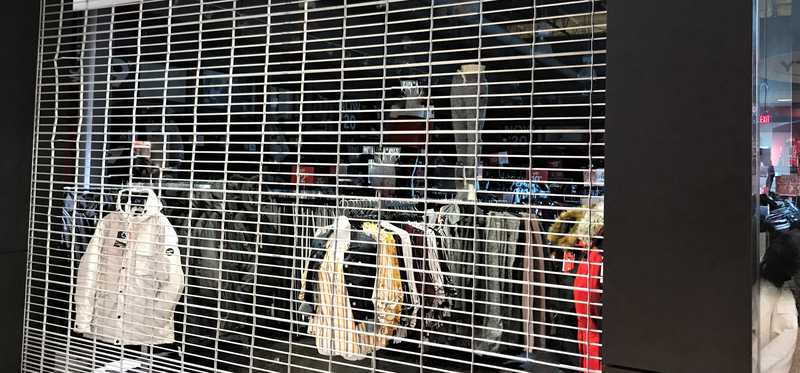
More to come
The crisis is still young as it hasn't even been four months since the shutdowns began in the U.S. The recovery for the retail sector won't be easy as malls still remain closed across much of the country and shoppers are unlikely to return in force while fears of the virus are still around.
The sector was already overstored before the crisis and Coresight Research predicts as many as 25,000 store closures this year. As the crisis drags on, we should see more retailers slip into bankruptcy.
Jeremy Bowman has no position in any of the stocks mentioned. The Motley Fool owns shares of and recommends Wayfair. The Motley Fool recommends Uber Technologies. The Motley Fool has a disclosure policy.
Previous
Next
Invest Smarter with The Motley Fool
Join Over Half a Million Premium Members Receiving…
- New Stock Picks Each Month
- Detailed Analysis of Companies
- Model Portfolios
- Live Streaming During Market Hours
- And Much More
READ MORE
HOW THE MOTLEY FOOL CAN HELP YOU
-
Premium Investing Guidance
Market beating stocks from our award-winning service
-
The Daily Upside Newsletter
Investment news and high-quality insights delivered straight to your inbox
-
Get Started Investing
You can do it. Successful investing in just a few steps
-
Win at Retirement
Secrets and strategies for the post-work life you want.
-
Find a Broker
Find the right brokerage account for you.
-
Listen to our Podcasts
Hear our experts take on stocks, the market, and how to invest.
Premium Investing Services
Invest better with The Motley Fool. Get stock recommendations, portfolio guidance, and more from The Motley Fool's premium services.